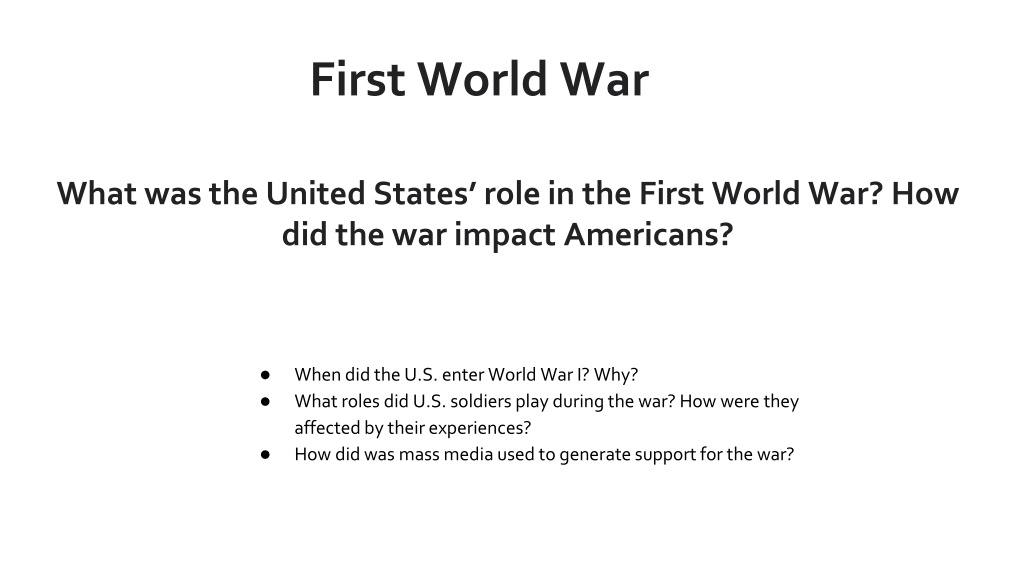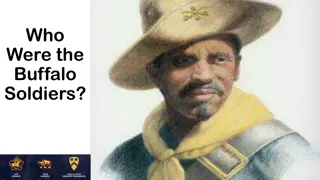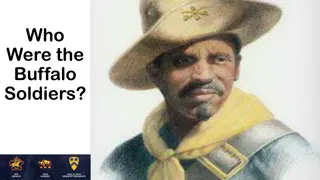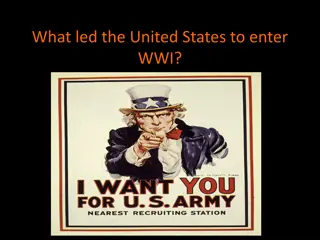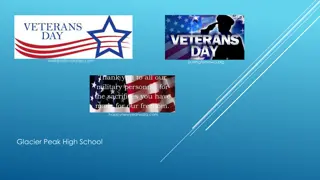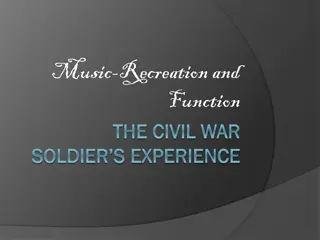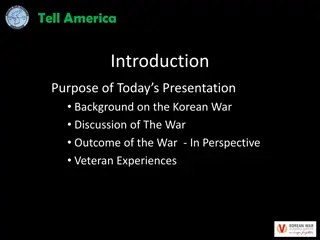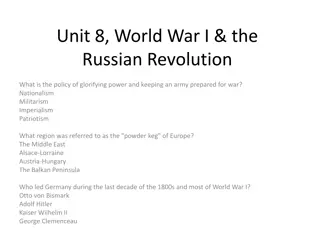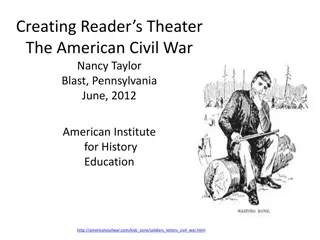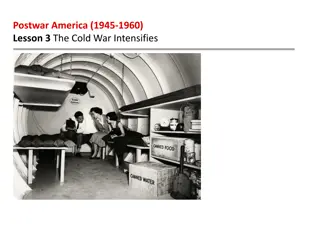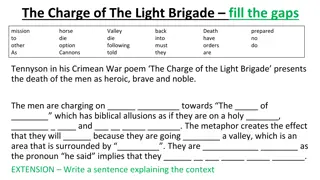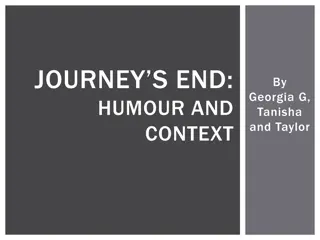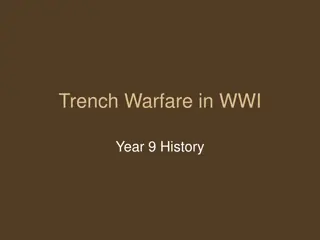The United States in World War I: Impact, Soldiers' Experiences, and Media Support
The United States played a significant role in World War I, entering the war in 1917 and sending soldiers to fight in Europe. The war impacted Americans socially and economically. U.S. soldiers served in various roles and were affected by their experiences. Mass media was used to generate support for the war effort. Primary sources like letters, diaries, and newspaper articles provide insights into the experiences and impacts of individuals like James Guy Tucker, Sr.
Download Presentation

Please find below an Image/Link to download the presentation.
The content on the website is provided AS IS for your information and personal use only. It may not be sold, licensed, or shared on other websites without obtaining consent from the author. Download presentation by click this link. If you encounter any issues during the download, it is possible that the publisher has removed the file from their server.
E N D
Presentation Transcript
First World War What was the United States role in the First World War? How did the war impact Americans? When did the U.S. enter World War I? Why? What roles did U.S. soldiers play during the war? How were they affected by their experiences? How did was mass media used to generate support for the war?
James Guy Tucker, Sr., to Willie Maude Tucker, November 1918
Summarize this letter. What do you think was Tucker s motivation for writing? Who was his audience? How do you think this might have affected the contents of the letter? Transcript of James Guy Tucker, Sr., s letter to his mother from the James Guy Tucker, Jr., papers, UALR.MS.0004, UA Little Rock Center for Arkansas History and Culture
James Guy Tucker, Sr., World War I diary
What was Tucker s purpose in keeping this diary? Who do you think was the intended audience? Use evidence from the journal to describe the experience of U.S. soldiers fighting in Europe during World War I. What questions do you have after reading this primary source? How does this source compare to the letter Tucker wrote to his mother during the same time period? James Guy Tucker, Sr., World War I diary. James Guy Tucker, Jr., papers, UALR.MS.0004, UA Little Rock Center for Arkansas History and Culture
Local Officer Is Cited for Gallantry in Action
What information does the newspaper article provide that is not in the diary or letter? Based on the letter, diary, and this citation, how do you think the war impacted Jim Guy Tucker? What does this primary source tell you about the U.S. role in the first world war? Local Officer is Cited for Gallantry in Action, Arkansas Gazette, Little Rock, Friday, January 24, 1919. James Guy Tucker, Jr., papers, UALR.MS.0004, UA Little Rock Center for Arkansas History and Culture
302nd Eng. repairing road over trench and 92nd Div. (colored) machine gunners going into action, Argonne Forest, France
Describe the soldiers you see in this photograph. Describe the trench. Based on the letter, diary and photograph, what do you think it would be like to live and fight in a trench? What does this photograph tell you about the U.S. role in the First World War? How do you think the war impacted these soldiers? 302nd Eng. repairing road over trench and 92nd Div. colored machine gunners going into action, Argonne Forest, France. Argonne France, 1918. Library of Congress Prints and Photographs Division.
Uncle Sam says: All the Kings in the World Can t Beat My Hand
What is the meaning of the cards in Uncle Sam s hand? Who do you think was the audience for this poster? What was its purpose? What does this poster tell you about the role of the United States in the First World War? Uncle Sam says: All the kings in the world can t beat my hand. United States, 1917. Library of Congress Prints and Photographs Division.
What does the title of this song refer to? Where is over there? Who was the audience for this song? Why did Cohen write it? Summarize the main idea of these lyrics. What does this primary source tell you about the role of the United States in the First World War? Cohan, George M. Over There. Herman Darewski Music Publishing Co., London, England, 1917. Library of Congress Notated Music.
Mobilizing Woman-Power
Who wrote this book? Who do you think was the audience for the book? What was the author s purpose? What roles did women fill in World War I? How did the war affect women? Blatch, Harriot Stanton, Mobilizing Woman-Power. (New York: The Womans Press, 1918). Carrie Chapman Catt and National American Woman Suffrage Association Collection, Library of Congress.
